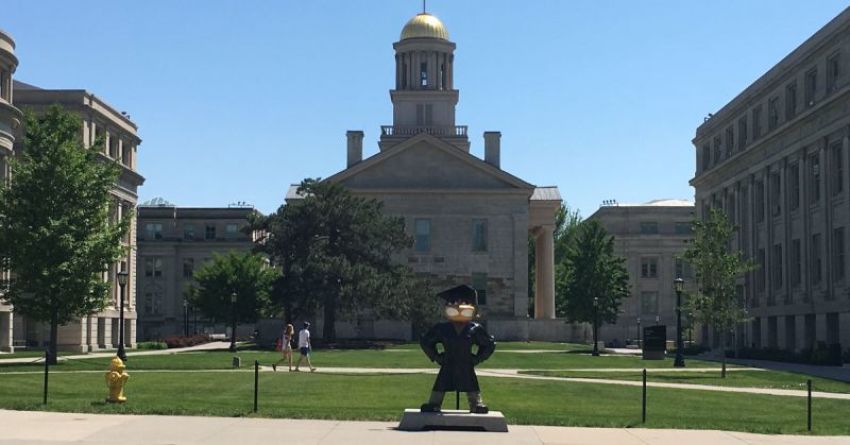Christian groups urge court to uphold ruling allowing religious student clubs to choose their leaders

Several religious organizations have filed an amicus brief on behalf of a Christian student group at the University of Iowa that wants to only have Christian leaders.
At issue is InterVaristy Christian Fellowship’s lawsuit against the University of Iowa over the school’s “Human Rights Policy,” which prohibited religious student groups from requiring their leaders to live by the beliefs and standards of the group.
Chi Alpha Campus Ministries, the Christian Medical & Dental Associations, Parkview Evangelical Free Church, and Ratio Christi filed the brief on Tuesday before the U.S. Court of Appeals for the Eighth Circuit.
Each party in the amicus brief says they have a student group chapter awaiting approval from the University of Iowa pending the results of the InterVarsity lawsuit.
Like InterVarsity, argued the brief, the groups “welcome everyone to their meetings, activities, and events,” however, they “could not accomplish their respective missions without ensuring that their leaders embody their core religious beliefs.”
The brief argued that until 2017, the university maintained an antidiscrimination policy that respected the rights of religious student groups to choose their own leaders based on their beliefs.
“In 2017, all this started to change—but only for religious groups. Suddenly, the University began systematically derecognizing—i.e., effectively banishing from campus—any religious organization that used religious-belief requirements for their leadership,” read the amicus brief in part.
“Once enjoined, the University did not change its ways. Rather, it doubled down, expanding its discrimination by derecognizing even more religious groups, including InterVarsity Graduate Christian Fellowship, and defying the district court’s injunctions against enforcement of this policy.”
The groups filing the brief were represented by the Alliance Defending Freedom, a conservative law firm that has argued First Amendment cases before the U.S. Supreme Court.
“No group should be forced to accept leaders who don’t even agree with the group’s mission,” said ADF Legal Counsel Michael Ross in a statement released Tuesday.
“A public university is supposed to be a marketplace of ideas, but that marketplace can’t function if officials will not let groups elect leaders who agree with the group’s reason for being.”
Since 2017, the university has been the subject of litigation from multiple religious student groups over the implementation of its human rights policy.
Last September, U.S. District Court Judge Stephanie M. Rose issued a ruling allowing InterVarsity to choose leaders based on their parameters rather than the Human Rights Policy.
“… university nondiscrimination policies are not viewpoint neutral if they are selectively applied to restrict the leadership and/or membership requirements of some student groups but not others,” wrote Rose.
“Some groups, such as Love Works, Zeta Beta Tau, and Pi Kappa Phi, can express their views on religion. This disparate treatment constitutes viewpoint discrimination against InterVarsity.”
After the September ruling, the university released a statement claiming that they had revised their standards for student organizations to “permit student organizations to require their leaders ‘to agree to and support’ the organization’s beliefs.”
“The University of Iowa has always respected the right of students, faculty, and staff to practice the religion of their choice,” stated the university.
“The case involving Business Leaders in Christ and later InterVarsity Christian Fellowship/USA and InterVarsity Graduate Christian Fellowship presented a difficult issue for a public university as administrators tried to balance the rights of all individuals on campus.”
The university also stated that it “acted in good faith as they attempted to navigate the complicated interplay between the First Amendment and Fourteenth Amendment and the direct conflict with the Iowa Civil Rights Act.”
In February of last year, Rose ruled that the policy could not be enforced against the student group Business Leaders in Christ when they did not allow a homosexual student to become a leader over his opposition to the group’s views on marriage and sexuality.



























